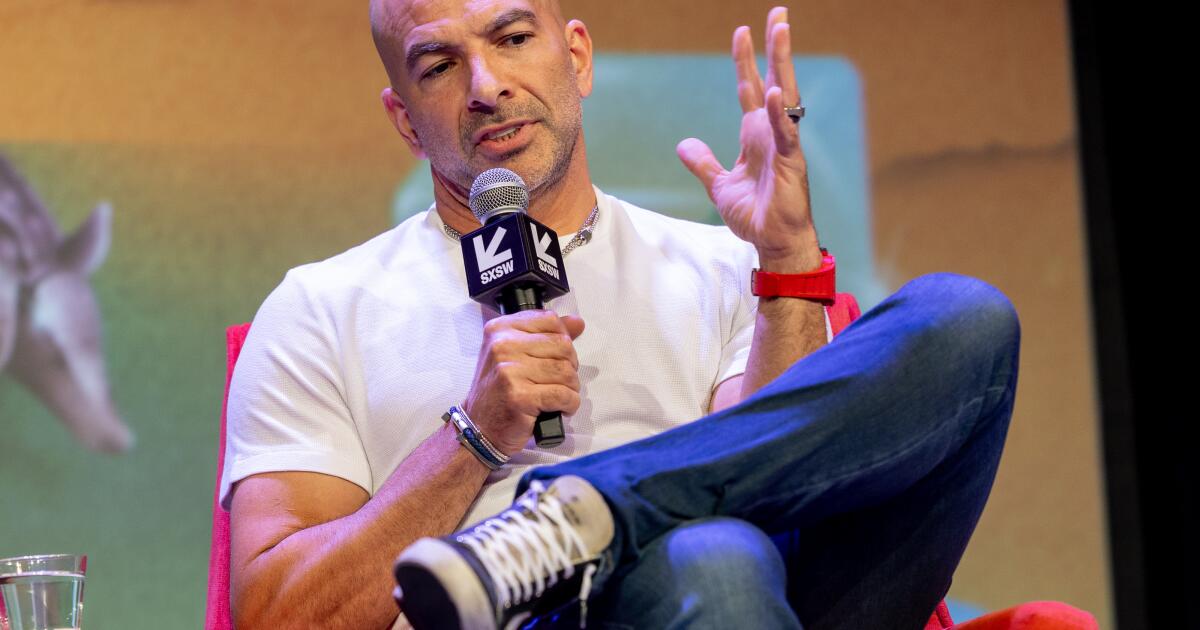CBS News cuts ties with longevity expert Peter Attia amid Epstein revelations
After some initial resistance, CBS News has cut ties with contributor Peter Attia, whose name appears more than 1,700 times in the files of pedophile Jeffrey Epstein.
Attia, a physician who specializes in longevity medicine, was among the 19 contributors named last month by CBS News editor in chief Bari Weiss. A CBS News executive confirmed Attia’s departure Monday.
Attia’s resignation was agreed upon after discussions with Weiss, according to one of her associates. He had not appeared on the network since the announcement of his hiring in January.
Once Attia’s name showed up in the cache of Epstein files released by the Department of Justice earlier this month, it seemed as though cutting him loose would be a no-brainer for the news division.
But Weiss, who came to CBS News when parent company Paramount acquired her contrarian digital site the Free Press last fall, is highly skeptical of cancel culture and resisted immediate action, according to people familiar with her thinking.
A representative for Attia said he quit because “he wanted to ensure his involvement didn’t become a distraction from the important work being done at CBS.”
Any appearance on the network probably would have generated a spate of negative stories.
Attia’s email exchanges with Epstein included a crude discussion about female genitalia.
Another message showed Attia expressing dismay that he could not discuss Epstein’s activities. “You [know] the biggest problem with becoming friends with you? The life you lead is so outrageous, and yet I can’t tell a soul …,” Attia wrote.
In 2008, Epstein pleaded guilty to state charges of soliciting prostitution, including from a minor. He was found dead in his jail cell in 2019, about a month after being arrested on federal sex-trafficking charges
From a business standpoint, keeping Attia at CBS was untenable. Health-related segments are attractive to advertisers and it’s highly unlikely that any sponsor would want their commercials adjacent to him.
Attia had already been dropped by AGI, a company that makes powdered supplements,where he was a scientific advisor. He also stepped away from his role as chief science officer for David, a protein bar maker.
CBS News pulled an October “60 Minutes” profile of Attia that was scheduled to re-air this month.
Attia apologized for his interactions with Epstein. He said he had not been involved in any criminal activity and had never visited Epstein’s island.
“I apologize and regret putting myself in a position where emails, some of them embarrassing, tasteless, and indefensible, are now public, and that is on me,” Attia wrote. “I accept that reality and the humiliation that comes with it.”
Attia wrote the bestselling book “Outlive: The Science and Art of Longevity” and hosts a popular podcast. His company, Early Medical, offers a program that teaches people to live healthier as they age.
